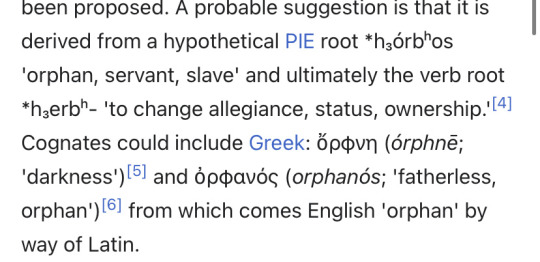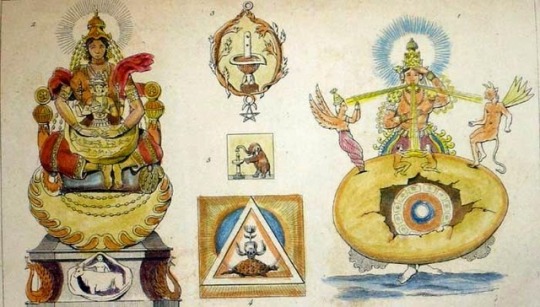#hybristes
Text
I know this is counter-culture as a trenitalia user but I funking love trains they're the future, fuck them cars
12 notes
·
View notes
Text
I'd like to thank all the hybristophiles that have their following public, that way I get to report more freaks ♡
#jellythoughts#im only using tcc tags becuz a lotta hybrists use them as well so#tcc#tccblr#tcc tumblr#tc community
2 notes
·
View notes
Text
The Weird History of the Prometheus Family
We all know the mess of Prometheus and his life, but not many know of his family.
We start this with Iaptus, Prometheus’ father. He was one of the elder titans that helped Kronus attack and ambush their own father, Ouranos. This, however, did not end like the titans thought it would. In fact, Zeus threw the brothers into Tartarus.
Iaptus, before this, would have four sons. Atlas, Prometheus, Epimitheus, and Menoitos.
Atlas is famous for several things in this world, and one of which is the world itself, which he holds up on his shoulders. The reason for his holding the world is as a punishment after the war against Zeus. He is also famous for introducing the art of Astronomy to mortals, what a star! One more thing that Atlas is famous for, or at least known for, is meeting the hero Herakles! Talk about riding coattails, right?
Prometheus, as we all know (See our last article!) gave fire to mankind, thereby tricking Zeus, and ended up being chained to a mountain. He is destined to have his immortal liver eaten each dawn by a vulture. Yikes!
Our next story is one quite sad, dear readers. Epimitheus has always been described as “dim witted” and is known well as the god of afterthought and excuses. Even in our own creation, his attributes have affected us, as because of his laziness, he left us helpless. Luckily, Prometheus gave us fire, allowing mankind to evolve further! Unfortunately, Zeus punished both Prometheus and Epimitheus for this, with the creation of Pandora who would go on to make a fatal mistake (see our next article!).
Not much is known about the last brother in this strange and weird family. His name is of course Menoitios, and according to his brothers he is the god of rash decisions and violent rage. Sounds fun at parties. One might even call him a violent and insolent man. One thing we do know is that he was cast down by Zeus.
This is the history of the Prometheus family, readers. I hope you all come out of this wiser, more thankful, and glad that you are not part of an immortal family such as this one. Go hug your mothers, and tell your brothers to stop being lazy.
#another article for my class#this one was fun to write!#the last line about Menoitios is a reference to Hesiod calling him hybristes#ancient history#prometheus#iaptus#atlas#epimitheus#titans#greek mythology
0 notes
Text
Kinky teens hot ass jizzy
Lezzie teens eat pussy
lana rose hot big boobs
Camila frias sanjuanina
The fattest and the chubbiest ladies in porn compilation
Ghana girls with big booty
Straight guy eating cum gay porn xxx The very first thing I had them
Hard sex fucking blonde on cam
Amateur FAT PUSSY swallows a dick until she cums (SOUND ON)
Thai girl with braces and nice booty fucks raw dog
#dadap#succubi#vum#monoplegia#Jovianly#oval's#HSC#gold-plated#keratalgia#inputs#Arlo#stubwort#lamppost#mooched#overexert#self-sacrifice#hybristic#rejectingly#anti-Protestantism#panthelism
0 notes
Text
Rolan, and how he deals with grief
Here's a Rolan fact I actually forgot until now.
BG3 spoilers under cut + TW for suicide
.
.
.
.
If both Rolan and ONE of his siblings die, it is implied in the script that the remaining sibling commits suicide by walking into the shadow curse -
++++++
Player: I did what I could to save him. (after Rolan dies)
Lia: Doesn't matter, does it? They're gone.
Lia: Everyone I've ever loved is dead. I did this - I failed them. [devnote: her grief is starting to overwhelm her, she blames herself and thinks she's worthless]
Lia: You won't see me again. [devnote: she's planning to walk into the cursed darkness to die - alone]
-
Player: He died as he lived - stupidly.
Cal: Rolan could be stubborn, but he was never malicious. Not like you. [devnote: despite his grief, he feels pity for the player]
Cal: Everyone I've ever loved is dead. I have nothing. [devnote: shellshocked, unable to process what happened]
Cal: You won't see me again. [devnote: he's planning to walk into the cursed darkness to die - alone]
++++++
There are a lot of thoughts I have about this - for one, Lia seems to have a similar reaction to Rolan if he loses his siblings. Despite their differences in opinion, they've probably had more influence on each others' behaviors and internal morals than they think. On the other hand, Cal seems so shocked that he's unable to process reality, I think this signals to a certain type of dynamic between the three where his (presumably older) siblings were like protectors or mentors to him.
The main thought I have is that in most situations (aside from saving everyone), Rolan is often the one who ends up as the sole survivor after his siblings die at Moonrise. But he survives in all cases, heading to Baldur's Gate and resuming his apprenticeship. The grief might be enough to kill him if he truly had nothing else, but he pushes through it regardless, because otherwise, the loss would have been for nothing, which is something he himself admits is hubris (in his journal). Rolan's logical approach to life backfires on him; if he's so great, if he's a hero, why couldn't he save the two people who meant the most to him? He's had this idea all his life, that he's talented and powerful, so he's supposed to be able to protect everyone on his own, and when he can't do that, the magnitude of his failure is such that he can't even process it himself. He has to try and move on with his life because that's what he'd want from them - so that's what they would have wanted for him (if Rolan dies, he leaves behind a hologram telling his surviving sibling/s to head to Baldur's Gate and move on quickly from the grief).
His apprenticeship is really all that's left to him at that point, the only thing distracting him from his overwhelming grief. That's what makes it all the more tragic that Lorroakan turns out to be who he is, a selfish, hybristic abuser who treats him no better than a servant. There's something so heartbreaking about seeing how bitter and hopeless he becomes after his siblings' death, knowing he has nowhere else to go.
#rolan#rolan bg3#bg3 rolan#baldur's gate 3#bg3 spoilers#can i just give rolan a big hug?#tw: suicide mention#tw: abuse mention
100 notes
·
View notes
Text
„Hybris (as I and others have been arguing for some years)3 is essentially the deliberate infliction of serious insult on another human being. At the heart of the concept lies the idea of the personal honour (time) of the individual, and to treat someone hybristically is to behave to them as if they were of lesser status—time— than they can legitimately lay claim to. As Aristotle said, in what is by far the best ancient discussion of hybris, ‘dishonour (atimia) is characteristic of hybris’ (Rhet. 1378b23–35). In a society whose members greatly value honour, and strongly fear shame and dishonour, such insults might be deeply felt, and gravely affect the standing of individual victims in their communities. Hybris appears consistently as the most resonant term to apply to cases of serious insult, often, but not necessarily, involving physical force, violence or restraint. More ‘traditional’ interpretations of hybris, still commonly found in scholarly discourse and perhaps even more commonly among the ‘chattering classes’, see it as human arrogance, over-confidence or unawareness of the reasons for one’s own good fortune. These are misconceptions of the last two centuries, whose prevalence reflects more general, and damaging, tendencies to see the nature of Greek religion through Christian eyes, and to interpret Greek tragedy through reliance on over-simplified formulae (e.g. in terms of the hybris of heroes provoking the nemesis of the gods).”
- Nick Fisher, Hybris, Status and Slavery
2 notes
·
View notes
Text
I started the year with a hybristic whatsapp sticker and now I'm facing the consequences (the gods have cursed me with low blood pressure)
1 note
·
View note
Text
Herodotus, “The English Patient”, and post-colonial theory (II: some thoughts on the text of Vernon Provencal)
“The English Patient” is an important work of modern literature and the text of Pr. Vernon Provencal on it that I have reproduced in the previous post of mine is very interesting and thought provoking. I have, however, some critical remarks inspired by it, and more particularly on Ondaatje’s proposed “official interpretation” of Herodotus, the one of the two aspects of the Herodotean work in “The English Patient”, of Herodotus seen as the founder of the Western “imperial history”:
Imperial history is the traditional view of history in the West that stems from Herodotus’s Eurocentric distinction between Greek and barbarian; it is the imperial record of achievement that claims to have discovered the New World, to have explored the Dark Continent...
As the Father of History, Herodotus preserves in the main argument of the Histories the “official” record of the past, of the great achievements of men — specifically, of white European males — of wars fought between “us,” the civilized societies of the West that trace their history to ancient Greece, and “them,” the barbarians of the East, the indigenous peoples of the non-European world. This is the Herodotus whose history is a chronicle of “(white) firsts,” the original archive of the relentless partition of the earth by imperial right of conquest.
First of all, as Pr. Provencal observes, Ondaatje’s interpretation of Herodotus in The English Patient is subjective and literary: Ondaatje uses Herodotus as a powerful figure of the Western intellectual tradition in order to present his own thoughts and ideas on history and on the relationship between “West” and “East”. This is not something problematic in itself, because Ondaatje writes literature, not a scholarly paper. Moreover, it is at the same time a tribute to Herodotus and to his influence in the intellectual history. And of course Ondaatje’s Herodotus is not “just” an “historian of the Empire”, but an ambivalent and fascinating figure.
However, I think that we must bear in mind the following points about the real, not the literary, Herodotus:
1/ There is of course in Herodotus a history of empire building, but it is not a history of the building of a Western empire: Herodotus records in his Histories the rise of the Persian Empire and its eventual defeat by the Greek city-states, which fought in order to preserve their freedom. In this sense, Herodotus’ Histories contains a powerful message for freedom and against hybristic imperial ambition and expansion, a message for all ages and places.
2/ Despite the use of terms like Europe and Asia, dichotomies of the type West/East or White/non-White do not play any important role in Herodotus: Herodotus does not see the Greeks as champions of the West and of the Whitness against the East and the non-Whites, because more generally these distinctions were insignificant for the collective identity of the Greeks. What was important for the Greeks was the distinction between them and the “barbarians”, the rest of humanity which did not speak Greek (and one should not forget that the term “barbarian” did not have necessarily the pejorative sense it has today). To put it diffrently, the Greeks did not feel that they shared some racial or cultural identity with the Thracians, the Celts or the Etruscans, which would oppose them as “Westerners/Europeans” and “Whites” to the “East” or the ‘non-Whitness” of the Persians and the Egyptians. Projecting to the ancient Greeks ideas about the conflict of West and East as collective identities or of a conflict between Whites and non-Whites is totally anachronistic.
3/ The distinction between Greeks and non-Greeks (”barbarians’) and the effort to understand its meaning play of course a very important role in Herodotus, who naturally is not exempt from some Greco-centrism. Moreover, Herodotus is understandably proud of the Greek victory over the Persian invasions of Greece. However, Herodotus is far from being a mere propagandist of the Greek “superiority’ over the “barbarians”, and it is not without reason that his most fierce ancient critic, the Plutarch or pseudo-Plutarch of the anti-Herodotus diatribe On the Malevolence of Herodotus accuses him of being philobarbaros (”barbarian lover”!). And this because Herodotus often recognizes and praises virtues and achievements of non-Greek peoples, even of the Persian enemy, and records eagerly important non-Greek influences on the Greeks, but also the non-Greek origins of important Greek personalities or groups.
Moreover, Herodotus is to an important extent a cultural relativist, as he understands that each people have their own customs and way of life which correspond to their character and conditions of living. That’s why Herodotus avoids easy condemnations of the customs of other nations, attempts to impose on foreign cultures the change of their customs in the name of the cultural superiority of some are for him unacceptable, and notions of “civilizing mission” of some ethnic groups are totally stranger to him. Moreover, the underlying unity of the human nature, of the human passions, aspirations, and limitations, is always present in Herodotus’ work, and even the enemies of the Greeks are not dehumanized or caricatured. Of course the conflict between the Persian imperial despotic monarchy and the Greek republics plays an important ideological role in Herodotus, and not without reason. However, for Herodotus the opposing human aspirations of imperial/ tyrannical ambition and of love for freedom transcend the distinction between Greeks and “barbarians”: “barbarian’ peoples like the Massagetae and the Scythians fight for their freedom, tyranny and the crimes of tyrants are realities in the Greek world, and, according to many Herodotean scholars, Herodotus’ work contains a severe warning about the flaws and dangers of Athenian imperialism, despite Herodotus’ admiration for the role of democratic Athens in the Greek victory in the Persian Wars and in the preservation of the Greek freedom.
#herodotus#the english patient#michael ondatjee#vernon provencal#ancient greek classics#postcolonial theory
4 notes
·
View notes
Note
techno and tubbo?
or nah?
oh shit right.
Techno - Menoitios. some people will say ares because hes the god of blood, war, dogs, and farming and whatnot. others will say protesilaus because of the syndicate. personally, i say menoitios. reason being? menoitios was a titan and might have even been the god of rash action and violent rage. say, who was one of the people that blew up l'manberg after being so called "betrayed"?
technoblade. that in and of it's self was extremely rash considering there wasn't much planning going into it. techno is one to plan. always has been. this could be because of his anxiety or cc!techno's want to portray his character as meticulous. either way, c!techno was blinded by personal rage and vendetta against tommy and by extension l'manberg.
not to mention, menoitios' name essentially translates to "doomed might" after being derived from the greek words "menos" (might, power) and "oitis" (doom, ill-fated). this plays into the fact that techno is a powerhouse above it all has the strategy to back him. on top of this, hesoid, a famous greek poet, called menoitios "hybriste" which translates to "violent man, insolent man" or "a violent, overbearing person"
techno matches all of these. he is quite violent as that is literally one of his trademarks with the whole "blood for the blood god" and "the voices, phil. they crave violence." plus insolent is just "showing a rude and arrogant lack of respect". techno has literally only shown two people respect and even then he lowkey used ranboo for his silk touch hands. not cool man. sure you could say him giving tommy the axe of peace and saying he would have fought everyone for tommy and what not but i'd like to counteract that with he never fully told tommy the truth. not in pogtopia, not in the commune. which if you're gonna work with someone, you need to tell them the entire truth, i'm sorry. ANYWAY.
there's no real myth for menoitios aside from thr fact zeus lightning bolt'd him and killed him because of his hubris and there's no connection to techno on that one. thats a tommy thing im sorry.
Tubbo - Orpheus. ok this part im writing when im half awake so bare with me. the musical hadestown is well known at this point and by extension so is orpheus. to which you would know that the first/second song, wedding song, is essentially orpheus saying he can charm anything everything in order to get what they need to survive. which is true to orpheus himself! orpheus was able to charm any living thing with his music. and we all know tubbo is an extremely musical person.
fun fact: there are several proposed etymologies for the name orpheus. one of which: this (i'm not typing it out)

now, tubbo was confirmed to be an orphan a while ago. can't remember when but phil said they found him on the side of the road in a box. now even if that's retconned, tubbo is still an orphan considering, iirc, puffy adopted tubbo. plus the whole "to change allegiance/status" thing? y'know.... going from secretary of state to president? his status in l'manberg and more specifically, the world was changed. even if it was forced upon. also when tommy said "i've always called you my sidekick but really... i was your sidekick all along." that's changing status in a way.
now there are a couple myths with orpheus. the most well known being the one about eurydice and her death. ofc you know i'm saying tommy in the case of eurydice on this first one (platonically!!!) more specifically, the "fourth" death (prison kill). in the myth, orpheus finds eurydice's body after she fell into a pit of vipers and died. theoretically, if the dsmp had the security camera's mod, sam could have let tubbo see tommy's body in canon. but they dont so tubbo had to take sam's word for it, (even if he didn't believe him).
orpheus, consumed in sorrow, played songs that caused even the nymphs and gods to mourn before him. tubbo, consumed in denial or grief, began searching. searching for answers of who could have led to dream killing tommy. orpheus was then told to travel to the underworld to try and get eurydice back. tubbo went to techno's house to investigate knowing fully well techno would kill him if he logged on.
past that i cant make anymore connections but that's probably because i'm tired. if i think of any more i'll text you. but yeah
Philza - Hades
Techno - Menoitios
Tubbo - Orpheus
#con#elliott answers#temperance babbles#technoblade#tubbo#dream smp#techno dsmp#tubbo dsmp#tommyinnit#sleepy bois inc#sbi#mcytblr
19 notes
·
View notes
Text
don't @ me for reblogging my extremely niche fandom on your dash, we don't even have fanfics
#I am in extreme pain#I've been craving some good fanfiction for these characters but THERE'S NONE#not on ao3#not on EFP#I fear I must resort to wattpad#dark times await me#this is about luxastra btw#luxastra#hybristes
14 notes
·
View notes
Text
I'm doing gods work for reporting ppl who think murderers are hot <3 hope y'all go die in a hole lmaooo
#im only using tcc tags becuz a lotta hybrists use them as well so#tcc#tcc tumblr#tccblr#tc community
1 note
·
View note
Text
Rising Moon
The black haired girl is awake, even in the middle of the night. She hunches over her computer towers and whirring fans and glowing red wall panels, occasionally sipping from a can of Arizona iced tea. On her three computer screens are a forum, a script editor, and a makeup tutorial. She types quickly, lines of code filling up the screen. Then, she sits back, hovering a bony finger over the enter key. A relieved sigh leaves her, as pictures and text files cascade down her screen. She flips through them - screenshots of computer generated graphics, press releases, and pictures, which she immediately navigates to. She drops them all into a file, which she compresses.
She navigates to the forum. "new hybristes os info, a month early. youre welcome boys" She types, attaches the compressed file, and slams enter.
The responses stream in almost immediately.
"You're kidding."
"BASED LEAK ANON"
"expected you to have it earlier"
She frowns at the last response. "only worked on getting it for like an hour lol. have more important things to do than get technology leaks for you sorry lot"
Much more praise, some doubt. Gradually, screenshots begin to be posted to confirm the file's veracity. The girl basks in the attention of the forum users.
The woman in the makeup tutorial is almost done, now applying glitter to her perfect cut crease. The black haired girl's eyes catch the glittering light and her attention shifts to the video. She is transfixed.
She gets a notification in the corner of her screen. Initially, she ignores it, but is struck by the text.
"leak anon - parker. can we talk?"
She pauses the video. Her mouse hovers over the notification, apprehensive. Finally, she clicks. A chat client opens.
"lol whos parker" She types this very, very slowly.
"parker pearl. jones memorial high. 17 years old. leak anon on the technology board. responsible for copyright infringement, property theft, and transmission of harmful computer programs. among other things."
Parker gives much thought to the next sentence. "i guess so"
"if you were to get caught, you'd go to jail for a great deal of time."
"i guess so"
"you're very good at what you do, pearl."
"whta do you want" She types quickly.
"to speak with you in person."
"dont have a choice right"
The response to this comment seems to take years. Parker downs the rest of her iced tea in one gulp.
"this friday, five in the evening at the coffee shop in jonestown mall. can i expect you, alone, there?"
"w/e"
"i look forward to our little chat."
"who are you?"
Parker is ignored. "goodbye, pearl." The online symbol next to the person flickers to an offline grey. Parker immediately opens a blank script in her code editor, then types up a series of lines. She makes many mistakes with shaky hands. At last, ten minutes later, she runs it. It turns up an error. She groans, banging her head on the keyboard. The person on the other side is using a VPN, masking their IP and location.
Parker closes out the code editor, then the makeup video. Underneath the window is the technology forum, where hundreds of responses and dozens of new threads have been created about the leak. She scrolls through the adulation, a vague smile replacing her earlier worry. She closes it out when she becomes bored.
Then, the chat. As she reads the words one last time, her shoulders droop. Friday, at the coffeeshop, she had to meet this person. Or else. Parker shuts down and shuffles off to her unmade bed. She can't find sleep, however. She lies awake under the light of the rising moon.
0 notes
Text
“At first, Delos receives Leto’s proposal with pleasure (χαΐρε), for the island is well aware of her poor reputation among men; in this way, “I might become honored round about” (61-65). Something, however, holds her back from accepting and makes her waver: άλλά τάδε τρομέω Λητοί έπος, ούδέ σε κεύσω· λίην γάρ τινά φασιν άτάσθαλον ’Απόλλωνα έσσεσθαι, μέγα δέ πρυτανευσέμεν άθανάτοισι και θνητοΐσι βροτοϊσιν έπι ζείδωρον άρουραν. But the following story causes me to tremble, Leto, nor shall I hide it from you; for they say that Apollo will be excessively overbearing and greatly lord it over the immortals and mortal men on the barley-giving earth. (66-69) The reason for the universal fear that gripped all lands and caused them to reject Leto’s entreaties is now made explicit. A rumor, whose source remains obscure, has it that her son will be brutally violent and tyrannical.
Critics have vainly tried to tone down the shocking implications of the text by suggesting that these lines merely form a somewhat hyperbolic expression for Apollo’s great power. For example, Kirk finds the use of άτάσθαλος “extravagant, or insensitive” although “the theme of Apollo’s majesty ... is here introduced quite plausibly.”?2 Förderer, on the other hand, detects lighthearted humor in Delos’s grotesquely exaggerated characterization of Apollo’s might. Forstel and Miller offer more sophisticated explanations, but both fail to persuade. The former claims that the rumor about the god describes his nature but contains no specific threat that motivates the rejection of the lands. The lands, however, compare themselves with the announced terrible greatness of the god and sense their absolute inferiority to him. This sense, in turn, gives rise to their fear. The main point for Forstel remains the presentation of Apollo’s surpassing greatness. . . . “The poet contrives to suggest that Apollo might conceivably have felt the discrepancy between his fully realized divinity and the zero-point of his emergence into being as an intolerable affront to his dignity and so have been prompted to wreak his resentment on the surroundings in which he first found himself.” None of this fancy footwork can sidestep the transparent sense of the text, which dwells not on Apollo’s grandeur, but on his savagely lawless and overbearing nature.
It is a shocking paradox to hear άτάσθαλος applied to Apollo. No single English term can convey the full range of this Greek word. “Overbearing,” “violent,” “reckless,” or “lawless” offer only partial translations for this highly charged term. In Homer, it is frequently linked with a form of hybris. Although in the epic, Apollo may on occasion display an uncanny or distant side, yet for the most part he is precisely the god who maintains order. Thus, it is he who intervenes to check the hybristic onslaughts of Diomedes and Patroclus;” and in the theomachy Zeus stages for his own entertainment, Apollo refuses to join in the frivolous fighting.’ The un-Homeric character of the άτάσθαλος god delineated here does, however, resemble the violent archer introduced at the beginning of the hymn. The divinity who there caused the gods to leap from their seats in terror is the same one whose birth inspires fear throughout the earth. Both images of Apollo have been thought so completely alien to the spirit of Greek religion that some scholars have posited an Oriental source. But there is no need to look so far afield: these verses, correctly understood, fit squarely into the Greek tradition—not, however of epic, but of theogonic poetry.
Delos, as well as the rest of the world, is terror stricken that Apollo “will greatly lord it over” not only mankind, but even the gods. Occurring here for the first time in Greek, πρυτανεύω carries a suggestion of despotic rule. Yet Zeus and Zeus alone rules over gods and men. The nations dread nothing less than that the newborn Apollo will depose the Olympians and succeed to the kingship in heaven. Furthermore, they fear that his reign, unlike the regime of Zeus, will be both violent and lawless. The full significance of the poem’s first scene now emerges. The awesome god who interrupts the peaceful banquet of the Olympians and strikes terror in the hearts of the divine assembly appears as the potential violator of the Olympian order and usurper of Zeus’s dominion. Only Zeus’s welcoming gesture of acknowledgment restores tranquillity. It indicates unmistakably that his son, far from being an enemy to be feared, is a friend and ally of the established order. On earth, that same new god is rumored to be none other than a brutal successor to Zeus. . . . Both Leto’s wanderings and Delos’s fears arise from a rumor that is manifestly untrue. The poet’s audience knew this, as do we. For in announcing his subject matter, the poet does indeed proclaim Apollo’s universal rule over mankind, πάσι θνητοΐσιν άνάσσεις (29), but the new god will prove to be not a terror but a joy to men: χάρμα βροτοΐσι (25). The dreadful rumor that accompanied Apollo’s birth has no solid foundation; we remain puzzled as to its source.”
- The Politics of Olympus: Form and Meaning in the Major Homeric Hymns by Jenny Strauss Clay
3 notes
·
View notes
Photo

Carl Jung: If the historical process of world despiritualization continues… It suits our hypertrophied and hybristic modern consciousness not to be mindful of the dangerous autonomy of the unconscious and to treat it negatively as an absence of consciousness.
0 notes
Text
watching Kiki Delivery Service, actual healing experience
26 notes
·
View notes








